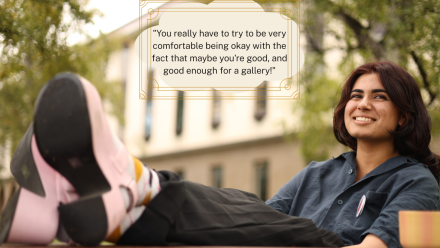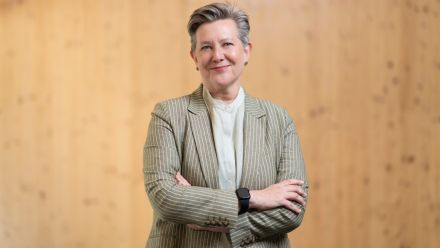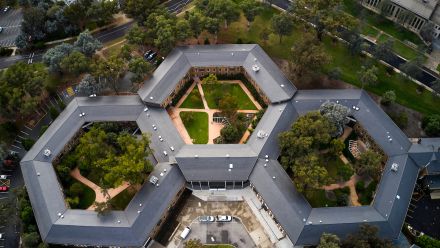ANU Spaces - Christopher Goodnow
Meet Christopher Goodnow, the head of the Department of Immunology at ANU College of Medicine, Biology and Environment
What do you do at ANU?
I'm an NHMRC Australia Fellow and Distinguished Professor of Immunology.
I lead a team of researchers, ranging from very experienced senior research fellows and scientific staff through to undergraduate students having their first real experience at the cutting edge of what is currently known.
The key problem we work on is how the immune system tells the differences between the normal parts of our body and the microbes and other elements that invade our body.
This self-nonself discrimination problem is at the heart of many key medical problems: autoimmune diseases (there are more than 100), allergy, transplant rejection, chronic infection, vaccination, and cancer.
Like many biological problems, it turns out to be like an onion: when you peel back one layer it turns out there is another layer beneath that you never anticipated. Immunological self-nonself discrimination has turned out to involve an extraordinary array of cellular and molecular control systems, supported by a great many genes, many of which we have yet to discover or understand.
What is your favourite spot on campus?
The view across Sullivans Creek towards Black Mountain from the bike path, as I ride towards South Oval coming back from a 3rd year lecture in the Science Teaching Building. This has been especially beautiful in the last few weeks with the leaves turning yellow.
I like it because...
Reminds me what a special place this campus is.
If I were free for an afternoon, I would...
Probably work on writing a paper, grant application or developing plans for a student's research project. I enjoy the detective work, finding relevant published papers online, trying to figure out what pieces of the puzzle are known, and how they might fit together with what we've unexpectedly found.
If I had a whole day free and the synoptic charts looked good, I might try to get to Bawley Point on the coast for a surf, but the idea of that is a lot more frequent than its occurrence.
Congratulations on being inducted into the US National Academy of Sciences. What does this mean for you, professionally and personally?
Professionally it is tremendously gratifying: it's concrete feedback by very informed peers that the hard work done by myself and my team laid down some solid, important bricks in the ever-extending house of knowledge-based-on-experiment.
Personally, it completes a bit of a life-circle. I grew up in Washington DC until I was 13, then moved to Australia, and then back to the US for two periods at Stanford one as a research technician and one on the faculty, before coming back to Australia. Returning to Washington DC for the NAS induction was a sort of home-coming.
It also prodded me about the fragile status of equality, truth, and democracy, then and now. The NAS was established by President Lincoln, and across the road is the memorial with his moving words explaining why it was necessary at that time to fight a civil war against slavery and large vested commercial interests, "So that government of the people, by the people, for the people, shall not perish from this earth".
How will this further your research prospects?
It provides a vehicle to build collaborations and networks with some of the very best scientists in the US, and to be kept abreast of emerging trends and opportunities from extremely well informed people. As an example, one of the many people I caught up with in Washington was Cory Bargmann, whom I last saw in Chicago nearly 25 years ago when we both received junior faculty awards from the Searle Scholars program. Cory now leads Barack Obama's massive new Brain Initiative, so it was very interesting to catch up with her.


